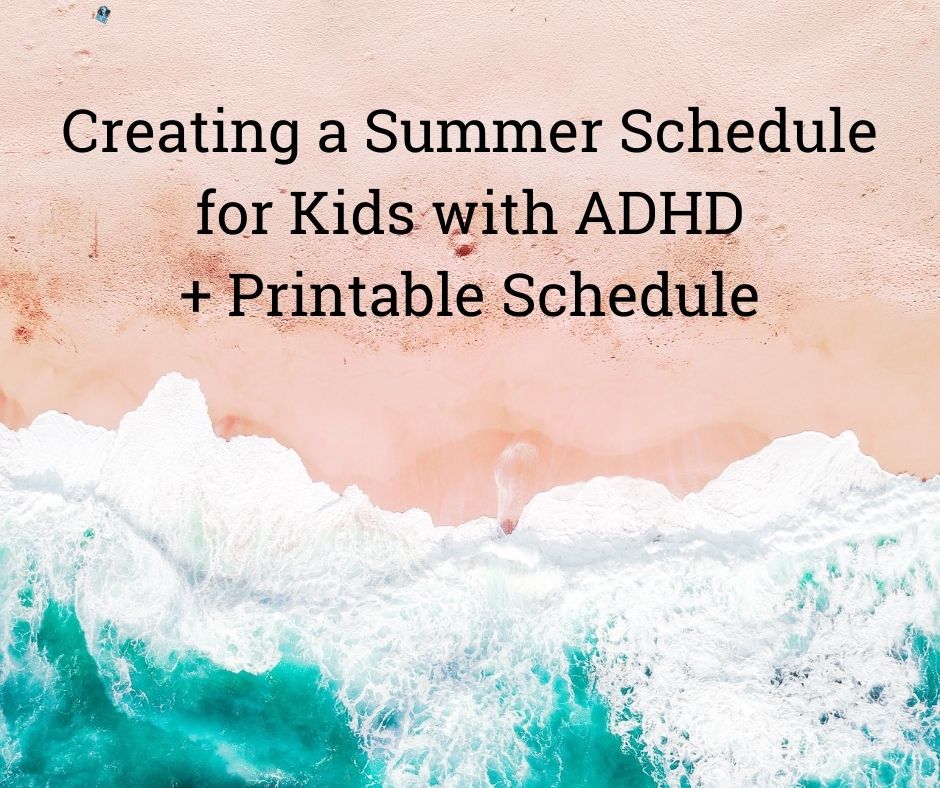
Creating a Summer Schedule for Your Child with ADHD + Free Printable Schedule
We’re still in the early days of Spring, but Summer will be here before we know it. And that means a big change in schedule and routines for kids.
The structure of the school year tends to fade into lazy summer days. And while some kids participate in programs, it’s important to still create a sense of structure and routine, especially for kids with ADHD. That’s become daily routine and structure are oh-so-important for helping kids with ADHD.
Below, our team of ADHD experts help shed light on creative ways to add structure to summer days.
Daily Schedules Matter … Even in Summer
During the school year, your child has a lot of routines. This includes:
- Regular bedtime routines
- Wake-up routines to get ready for school on time
- Meal times (set schedules for eating at school, snack time, etc.)
As we shift closer to summer, it’s important to not forgo all sense of schedules. Days tend to operate more smoothly when there is a schedule (even a flexible one) in place. Schedules are important because they help provide a sense of predictability for your child.
10 Ideas for Your Child’s Summer Schedule
Schedules don’t have to be rigid. Even just having a general sense of what’s happening is helpful for children. Here are 10 ideas to keep your summer schedule filled with fun and educational activities.
- Add lots of physical activities into your summer plans. Exercise is also beneficial for children (and adults) with ADHD. Examples include outdoor play (e.g, tag or catch in the backyard counts too!), trips to the pool (for fun or for swim lessons), bike riding, or even walking the dog around the block.
- Add plenty of arts and crafts time. (You can get some ideas here.)
- Talk with your child about what sports she or he’s interested in and explore options in your town. YMCAs have plenty of options, but you can also explore the Youth Leagues on the LouisvilleKY.gov site.
- Create a bucket list and try to fit in as many list items as possible. Examples include learning to skateboard or visiting the beach.
- Schedule in unstructured, imaginative play. Younger kids may like to play pretend, while older kids may read, listen to music, or simply enjoy the quiet downtime.
- To keep academic skills sharp over the summer, schedule in daily reading times and or study skills activities. Examples include summer bridge work, or review workbooks that cover the material your child studied throughout the year. This type of bridge work doesn’t have to be intense. You can also find interest-based classes on Outschool. For instance, if your child loves Mario or super heroes, you can find writing courses that sharpen writing skills while focusing on your child’s favorite interests. This is especially great for kids with ADHD who focus best on topics that interest them.
- Plan regular weekly trips to the library. Not only can you stock up on books, but many libraries also host weekly arts and crafts too. This is a no-pressure fun bonding activity.
- Use a large calendar to keep track of the family’s activities. This can be great for kids who need to see a visual calendar to help manage their time. Keep the calendar in a visual place, such as the kitchen. Include any vacations, appointments, work schedules (for older teens), and any sports activities.
- Review your family’s schedule the night before.
- Stay consistent with bedtime. Maybe summer bedtime isn’t as early as during the school year, but it’s still important to stay on a consistent sleep schedule.
Download Your Own Schedule for Summer
Need a blank calendar or schedule? We’ve got you covered! Download this FREE RESOURCE and use it to keep some structure in your summer.
Tip: You don’t have to schedule every second of the day. Try to create a summer routine that is predictable, yet still has plenty of flexibility when needed.
Talk to Us about ADHD Treatment
Even if you have the perfect summer schedule, your child can still benefit from other ADHD treatments, including therapy, coaching, and, in some cases, medication. Our multidisciplinary team can help your child learn to THRIVE.
To make an appointment, call us at 502-907-5908. You can also request an appointment here.
Related Posts
The Signs of Bullying and What Parents Need to Know
Bullying and ADHD - is there a connection? According to a study published in...
Top 5 Calming Apps for Children (And What to Use as an Alternative)
Calming apps?! It’s not uncommon for children diagnosed with ADHD to struggle...


